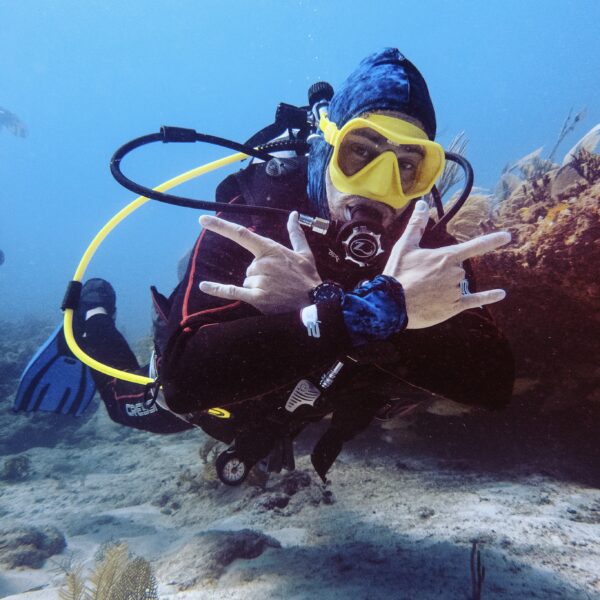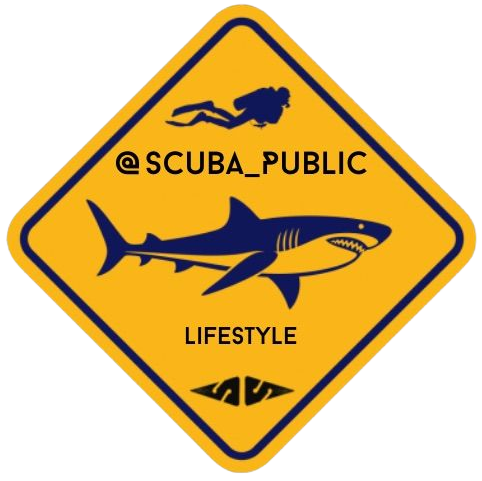FAQ Preguntas frecuentes
Do you have doubts to start this experience….

No, it's as simple as pinching your nose and breathing through your mouth when using compressed air equipment. We realize that it is even easier than using the snorkel.
Recreational diving, carried out under PADI or SSI standards, is extremely safe. That is why we, PADI/SSI Professionals, constantly train ourselves every year to maintain our teachings and skills at the highest level of SAFETY STANDARDS.
During all the PADI/SSI courses that you take, we will give you all the guidelines, elements, teachings, guidelines and knowledge so that your dives are the safest and for you to be a SAFE DIVER
No, it is not necessary to know how to swim to dive, although learning to swim can also help increase your confidence in the water and enjoy the diving experience more, it is not necessary to know how to swim to have your first experience and enjoy the beautiful diving sensation
For sure, the duration of the air depends on many factors, but we could say that the air will depend on our physical state, the temperature of the water, our anxiety and how deep we will be diving, the deeper we will be, the less diving time. For beginners, the air lasts twice as long as our dives begin at a shallow depth to create a safe environment for our clients.
During the course you will learn simple techniques to remove water from the mask without having to go to the surface, and we will also achieve control of the respiratory tract in such a way that it is not a problem for us to have water in the mask.
Water is an element that has weight, that weight on our body translates into pressure. The pressure increases with increasing depth.
The increase in pressure causes the air to reduce its volume, but it does not affect the water, and since our body is mostly water, we do not feel any difference, except in the air spaces, where there will be variations which we must balance to that there is no pain or discomfort. We will learn during the course to balance the pressures that cause discomfort in our ears when going down.
Cinema and television in their eagerness for spectacularity have misrepresented the reality of the dangers at sea. Certainly the most important tourist destinations are located on the shores of splendid seas, in which millions of bathers enjoy swimming, jet skis, surfing, windsurfing, kayaking, etc., without ANY ATTACK from the feared sharks. rays, barracudas, moray eels, etc. Almost all summer destinations are located on the seashore...how many acquaintances do you have who go to the sea in summer? How many are the millions of people you don't know who enjoy water all over the world?
How many shark attacks are there worldwide per year? Approximately 100, of which only 10 are fatal. Every year there are more people who die around the world because they were struck by lightning or stung by a bee.
During diving, due to the increase in pressure produced by descending into the water, the body absorbs an extra amount of gas than what we already have in the body (without realizing it). When we get out of the dive and through breathing we eliminate that extra gas, but since we have atmospheric pressure above us, said elimination is slow and does not present major risks.
When we get on a plane, it is pressurized to a pressure lower than atmospheric, therefore (at 2300msnm), if we were diving, the elimination of gases will be much faster, which can lead to certain accidents, due to the formation of bubbles in body tissues. That is why we must wait between 12 and 24 hours. To fly after diving, because in that time we have eliminated the extra gases that were in our body when we got out of the water.
The tanks are filled with air, which is what we normally breathe in our earthly lives. In the air we find only 21% oxygen, which is our vital element, the rest is 79% Nitrogen and other inert gases. If we fill the tanks with pure oxygen, we expose ourselves to great dangers, first because oxygen is very explosive and second, because pure oxygen at a very shallow depth (4m) is highly toxic. For this reason, in the world of diving, great emphasis is placed on calling them, appropriately, air tanks.
No, pregnant women or those who think they are pregnant cannot dive, since for certain, since experiments cannot be carried out, it is not known how pressurized gases affect the baby.
People with what ailments cannot dive?
People who have serious heart problems, with neurological problems and those people who are diabetic, cannot dive. There are exceptions, but that must be authorized by the doctor in writing.
The age to take "Diving Experiences" is from 10 years old, while for "Diving Courses" it is from 18 years old
The certifications will come with the legend of the course taken with the completion Jr. For example: OPEN WATER DIVER Jr. When they turn 10 years old, they become Senior.
What's the difference between one and other?
What's the difference between one and other? The difference will be in the maximum depth to which they can go down.
BAPTISM" of diving, which is the first experience of the candidate in the water with a diving team. You will have an introductory talk about the equipment, equipment management and the things you will do underwater
You just have to come with your bathing suit, and YOU WANT TO HAVE FUN!
